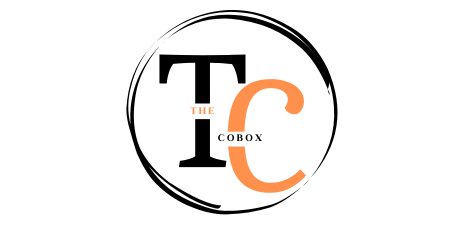From shaping climate policy to overseeing public health responses, careers in international organizations and the U.S. public sector offer professionals the opportunity to make a global impact while enjoying job security, competitive compensation, and purpose-driven work. Whether you’re interested in diplomacy, development, cybersecurity, or crisis response, both international institutions and U.S. government agencies are hiring across disciplines, offering long-term career tracks and opportunities for advancement.
A unique segment of these opportunities lies in Europe’s border management sector. For those seeking administrative roles in this space, Frontex vacancies offer compelling options. Frontex, the European Border and Coast Guard Agency, continues to expand its workforce, particularly in areas such as administration, human resources, finance, logistics, and policy implementation. These roles are critical to supporting the agency’s mandate of coordinating border control across the EU. Applicants typically undergo a rigorous multi-stage recruitment process. Success in securing these jobs often depends on targeted preparation and familiarity with the agency’s mission and administrative requirements.
Why Consider a Career in International or U.S. Public Service?
Unlike many private-sector jobs, careers in international bodies or the U.S. federal government often combine personal purpose with large-scale impact. Employees contribute to decisions that shape lives globally, from tackling pandemics to managing peacekeeping missions, from drafting international treaties to engineering cross-border infrastructure. While private corporations may prioritize quarterly profits, public institutions and multilateral agencies operate with broader mandates—human rights, environmental sustainability, public health, and democratic stability among them.
Moreover, public service careers offer:
- Structured career progression
- Attractive retirement and health benefits
- Opportunities for relocation and international assignments
- Training and reskilling programs
- Strong job security
For U.S.-based professionals, agencies like the Department of State, USAID, the Department of Homeland Security (DHS), and the Centers for Disease Control and Prevention (CDC) recruit top talent for both domestic and international operations. For globally-minded candidates, organizations like the United Nations, World Bank, and International Monetary Fund (IMF) offer global missions and cross-cultural collaboration.
U.S. Government Careers: An Overview
The U.S. federal government is the largest employer in the country, offering over 2 million civilian jobs in fields ranging from IT and law enforcement to healthcare and economic development. High-priority areas currently include:
- Cybersecurity and Technology: Agencies like the Cybersecurity and Infrastructure Security Agency (CISA) and National Security Agency (NSA) are recruiting aggressively for roles in digital forensics, network defense, and critical infrastructure protection.
- Public Health: Agencies including the CDC and the National Institutes of Health (NIH) continue to expand operations post-pandemic, especially in epidemiology, data science, and emergency preparedness.
- Foreign Affairs and Diplomacy: The State Department and USAID seek professionals skilled in negotiation, policy analysis, and program management to support U.S. diplomacy and international aid programs.
- Environmental Policy: The Environmental Protection Agency (EPA) and Department of Energy (DOE) are driving efforts toward sustainability, clean energy, and climate resilience.
- Law and Immigration: DHS, the Department of Justice (DOJ), and U.S. Citizenship and Immigration Services (USCIS) need legal experts and case managers to handle asylum, immigration enforcement, and civil rights issues.
International Organizations: Global Missions, Global Reach
For those drawn to multilateralism and international affairs, working at global institutions is often a dream career. These include:
- United Nations (UN): With operations in nearly every country, the UN offers careers in peacekeeping, development, humanitarian relief, and human rights advocacy. Roles include political affairs officers, translators, project managers, and logistics coordinators.
- World Bank Group: Specialists in finance, urban planning, education, and social policy contribute to global poverty reduction and development initiatives.
- International Monetary Fund (IMF): Economists and financial analysts monitor and advise on global monetary policy and fiscal stability.
- North Atlantic Treaty Organization (NATO): Security and defense experts contribute to strategic planning, communications, and operational readiness among allied nations.
- World Health Organization (WHO): Public health professionals manage pandemic response, disease prevention, and healthcare infrastructure development.
- International Organization for Migration (IOM) and UNHCR: These agencies support migrants and refugees, employing case officers, field workers, and legal specialists.
Education and Qualifications
Most roles in international and U.S. government organizations require at least a bachelor’s degree, with many positions preferring or requiring master’s degrees, especially in law, economics, public policy, international relations, or public health.
Fluency in multiple languages is a major asset, especially in roles requiring international collaboration. French, Spanish, and Arabic are frequently requested alongside English in UN agencies. For U.S. federal roles, English is the primary language, though bilingual skills are a plus for international assignments.
Certifications such as PMP (Project Management Professional), CPA (Certified Public Accountant), CISSP (Certified Information Systems Security Professional), or bar membership (for legal roles) may be essential for certain specialized tracks.
Internships and Entry Points
Many professionals begin their careers through structured internship or fellowship programs:
- Presidential Management Fellows (PMF): A flagship U.S. program for recent master’s and PhD graduates in public administration, law, and related fields.
- Pathways Program: Offers internships and recent graduate roles within federal agencies.
- UN Young Professionals Programme (YPP): A competitive entry-level program for candidates under 32 from underrepresented countries.
- OECD Internship Programme: For students from member countries to gain experience in economic and policy work.
These early-career programs are not only a launchpad for future employment but also a chance to build international networks.
Application Tips and Tools
- USAJobs.gov is the central platform for all U.S. federal employment listings. Create a strong federal resume, which differs from private-sector versions in length and content.
- UN Careers Portal and Taleo systems are standard across many international agencies.
- Customize your CV and motivation letter to match each job’s competencies and keywords.
- Prepare for long recruitment timelines—these can stretch from weeks to several months.
Career Growth and Mobility
Both U.S. and international careers offer strong growth potential. Employees can move vertically into management roles or laterally across departments and geographic locations.
- In the U.S. civil service, the General Schedule (GS) system provides clear pay and grade progressions.
- International organizations often use banded grading systems, with performance reviews, continuing education, and mission rotations playing key roles in advancement.
Many employees also have opportunities to participate in secondments, exchange programs, or special task forces that broaden their skills and exposure.
Benefits and Work Environment
In addition to meaningful work, careers in these sectors provide excellent benefits:
- Competitive salaries adjusted for cost-of-living indexes
- Generous retirement and pension schemes
- Paid parental leave and sick days
- Housing and relocation assistance (for international roles)
- Family education allowances
Furthermore, these organizations foster diverse, inclusive environments and promote gender parity and geographic representation in hiring.
Challenges and Rewards
The work is not without its challenges. Bureaucratic procedures, complex hierarchies, and political pressures can affect decision-making. International postings may involve high-risk environments or long separations from family.
Yet the rewards often outweigh the hurdles—whether it’s contributing to peace treaties, responding to humanitarian crises, or shaping public health responses.
Professionals in this field consistently report high levels of job satisfaction, especially those motivated by values, purpose, and global impact.
Final Thoughts
Now more than ever, the world needs capable, ethical, and globally-minded professionals working in institutions that safeguard peace, promote sustainable development, and uphold democratic values. Whether you’re an aspiring diplomat, public health expert, policy analyst, or cybersecurity engineer, careers in international organizations and the U.S. government provide a pathway to influence the world at scale.
As global challenges grow increasingly complex—from climate change to migration, from pandemics to digital security—the need for skilled professionals in public service continues to expand. It’s a sector where your work doesn’t just earn a paycheck—it shapes the future.











